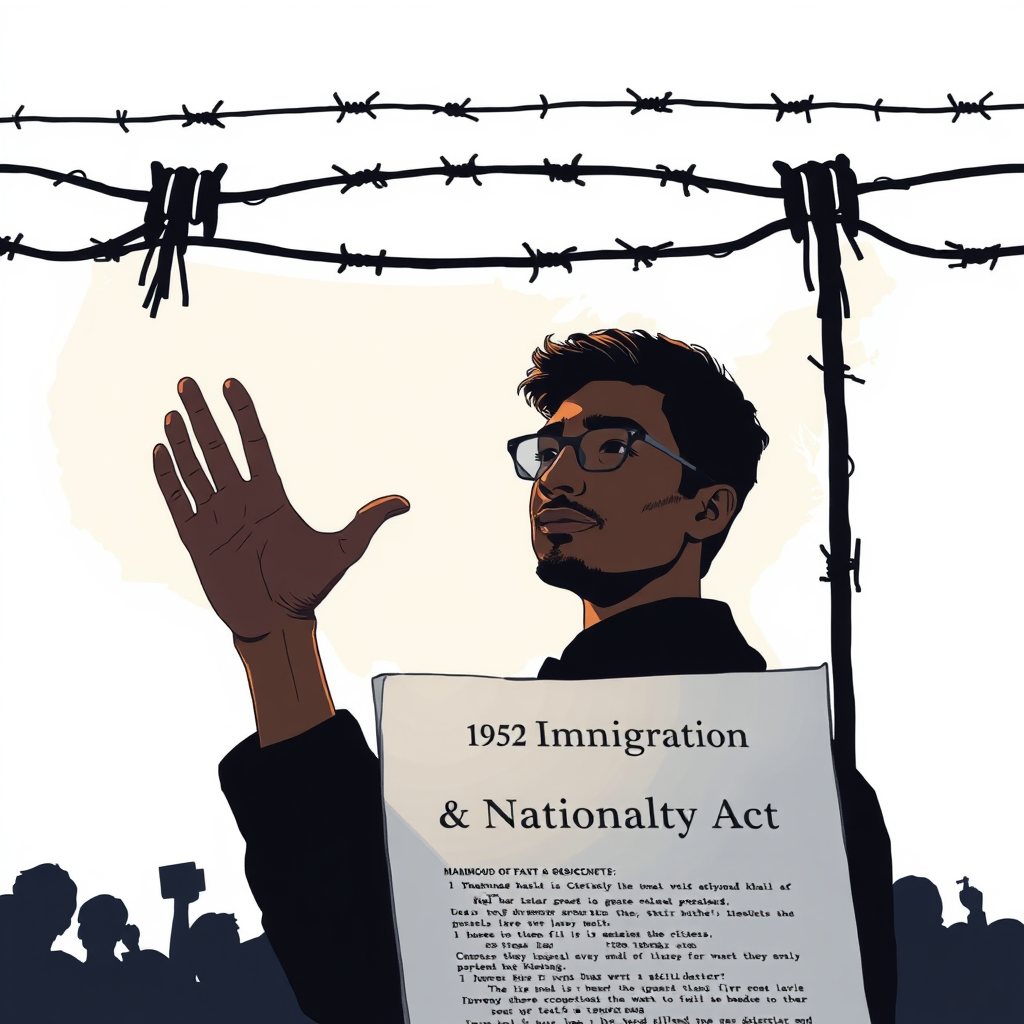Student Faces Deportation Over Pro-Palestinian Views

A US immigration judge has allowed the deportation of Mahmoud Khalil, a Columbia University graduate student and Palestinian activist, escalating a case that critics say targets protected speech and chills dissent. Judge Jamee Comans of the LaSalle Immigration Court in Louisiana ruled Friday that the Trump administration could proceed with removing Khalil from the United States, a month after his arrest.
The ruling isn’t a final deportation order, but represents a significant victory for the administration in its effort to deport foreign students engaged in pro-Palestinian activism, even without any criminal charges. The case hinges on a rarely invoked provision of the 1952 Immigration and Nationality Act, which allows the Secretary of State to deport individuals deemed harmful to US foreign policy interests, based on their speech and associations, even if lawful.
Secretary of State Marco Rubio determined last month that Khalil’s activism posed a threat, triggering the deportation proceedings. Judge Comans stated she lacked the authority to overrule the Secretary of State’s determination and denied a request from Khalil’s lawyers to question Rubio under oath.
The hearing took place in a Louisiana jail complex, a location Khalil’s supporters decried as deliberately isolating and intimidating. Khalil, a lawful permanent resident and husband to a US citizen, was born in a Palestinian refugee camp in Syria and holds Algerian citizenship. He remains detained in Louisiana, transferred there after his arrest in New York City. The judge has given Khalil’s legal team until April 23 to submit further arguments against deportation.
A separate case in New Jersey offers a potential reprieve. US District Judge Michael Farbiarz has temporarily blocked the deportation while considering Khalil’s claim that his arrest violated his First Amendment rights to freedom of speech.
During a brief address to the court before adjournment, Khalil argued the proceedings lacked due process and fundamental fairness, suggesting the remote location was intentional.
Khalil’s lawyers protested the limited time – less than 48 hours – they were given to review evidence submitted by the administration, including a two-page letter from Rubio outlining the reasons for deportation. They repeatedly requested a delay, which the judge rebuffed.
Rubio’s letter alleges Khalil engaged in “antisemitic protests and disruptive activities” that fostered a hostile environment for Jewish students. However, it does not accuse him of any illegal activity, emphasizing the State Department’s authority to revoke legal status based on potentially harmful beliefs or associations.
Following the hearing, Khalil offered a heart-shaped gesture to supporters, many of whom were visibly upset. Khalil maintains that criticism of US policy towards Israel is being wrongly equated with antisemitism. His legal team argues the administration is targeting him for exercising his right to criticize foreign policy.
“Mahmoud was subject to a charade of due process, a flagrant violation of his right to a fair hearing and a weaponization of immigration law to suppress dissent,” stated Marc Van Der Hout, Khalil’s lead attorney.
This case raises serious concerns about the potential for the government to use immigration law to silence political speech and target individuals based on their views, particularly regarding sensitive foreign policy issues. The invocation of the 1952 Act, and the broad discretion it grants the Secretary of State, warrants careful scrutiny to ensure it doesn’t unduly infringe on First Amendment rights. The situation highlights a worrying trend of increasingly restrictive immigration policies and the potential for political motivations to influence deportation proceedings.